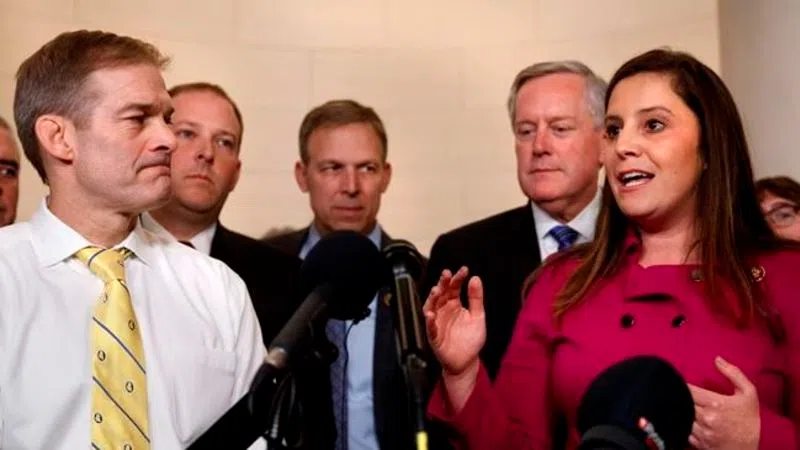
Ousted ambassador says she felt intimidated by Trump attacks
WASHINGTON — In chilling detail, ousted U.S. Ambassador to the Ukraine Marie Yovanovitch described to Trump impeachment investigators Friday how she felt threatened upon learning that President Donald Trump had promised Ukraine’s leader she was “going to go through some things.”
Trump was unwilling to stay silent during Yovanovitch’s testimony, focusing even greater national attention on the House hearing by becoming a participant. He tweeted fresh criticism of her, saying that things “turned bad” everywhere she served before he fired her — a comment that quickly was displayed on a video screen in the hearing room.
Rather than distract from the career diplomat’s testimony, Trump’s interference could provide more evidence against him in the probe. Democrat Adam Schiff, chairman of the House Intelligence Committee, said Trump’s attacks were intimidation, “part of a pattern to obstruct justice.” Others said they could be part of an article of impeachment.
The former ambassador was testifying on the second day of public impeachment hearings, just the fourth time in American history that the House of Representatives has launched such proceedings. The investigation centres on whether Trump’s push for Ukrainian officials to investigate his political rivals amounted to an abuse of power, a charge he and Republicans vigorously deny.


